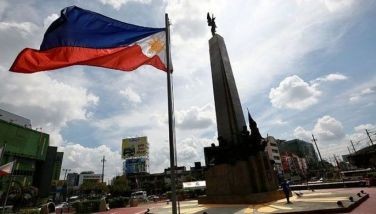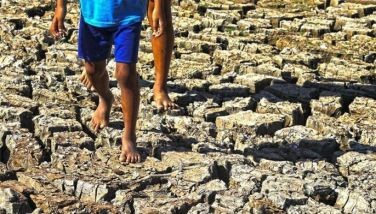Did media also fail to warn?

Media is always all over the place after a major disaster… often thrusting microphones into the faces of grieving victims. Media’s more useful role is before a disaster… to warn and get people out of harm’s way. In the case of Sendong, the nagging question that media managers must ask themselves is: have we warned the affected people enough? I am afraid the answer is a big fat NO.
For someone who has managed a major newsroom (two in fact, one print and the other broadcast), I know it is easy to be hypnotized into boredom by our weather bulletins. It is written in technical and bureaucratic language designed to deflect later accusations that the bulletin was wrong. We are also a people so used to typhoons and floods that it would take someone credible (Kuya Kim, perhaps?) to stand up and scream in no uncertain terms that real danger lurks, for anyone to take notice and take heed.
Take for example the “Severe Weather Bulletin No. 1 re Tropical Depression ‘Sendong’” dated Dec. 15, 2011, 11 a.m.… it says: “Tropical depression Sendong is likely to intensify within the next 24 hours…” Likely to intensify, it says. Does that sound to you like you have to pack up your bags and flee to an evacuation center?
No wonder no one takes these warnings seriously. That’s why parents send their kids to school early in the morning only to have DepEd issue an order suspending classes by mid-morning after exposing the kids to danger a few hours before and then, after. And the problem with media is that no one really bothers to interpret such official warnings into something useful for people. Reporters merely read the official announcements with all the built in ambiguities.
Unfortunately, weather reporting in our newscasts is more showbiz gimmickry than anything else. Kuya Kim goes up the roof of his Land Rover parked in a busy avenue wearing his bright orange Timberland jacket caressing a baby iguana in his arms as he talks about the weather in a few sentences before talking about his iguana. When he is reporting from the studio, he boringly plays with basic visuals of rainy clouds and sunshine in a flat screen monitor but essentially parrots the indecipherable weather bulletin. Contrast that with the way CNN weather anchors report.
Then again, I understand that those CNN weather anchors are trained meteorologists who know of what they speak. They don’t mess around with iguanas or boa constrictors on the set but talk about the weather with full authority.
From his tweets, I take it that Kuya Kim is a deeply spiritual man. It wouldn’t surprise me if his conscience is now bothered by the thought that if he did a better job of reporting the weather and warning of the oncoming Sendong, he could have saved a few hundred lives, at least. But it is not his fault. Weather reporting is yet to be taken seriously by media.
I will suggest to my ABS-CBN colleagues to invest some money in sending Kuya Kim over to the CNN weather center in Atlanta to learn how to report the weather. Professionalizing weather reporting in this country, in this era of changing weather patterns, is a worthy contribution of the network towards its public service mission.
Networks must not depend on PAGASA. There must be someone in the newsroom who is as dedicated to weather news as this blogger (http://www.typhoonk.com/sendong.htm). With the Internet, there are other authoritative sources (US military, for instance) network news producers must access other than PAGASA.
On the other hand, a blogpost of Gibo Teodoro on Facebook explains why it is difficult for government officials to adequately warn people about impending disasters such as floods. “Officials are naturally conservative in giving warnings because of the backlash that inevitably follows when an anticipated natural calamity doesn’t occur. This is particularly true in cases of weather related phenomena such as typhoons and low pressure areas. It becomes more difficult if the situation is one of continuous rain without a typhoon.
“Imagine a situation where rain is predicted for the next day to start from perhaps 9 a.m. to around 2 p.m. and to last for say five hours (you can’t really predict the precise time), you know that if rain does fall within the window given, children will be in school and may not be able to go home without wading through deep, dirty water, or worse, will have to stay in. Would you warn parents and advise them not to send their children to school?
“If you were in the government will you cancel classes for the next day in the area affected? If rain does come at the given window, then you will be hailed a genius, but if not then, who knows? The real danger of a pre-emptive warning that goes awry is the danger of the ‘boy who cried wolf’ syndrome occurring, if these occur frequently then people may take these warnings for granted.”
Fair enough. But that’s not a valid justification for the weather bureau to put people in danger because the way they write their bulletins is fatally less precise. That is why it is imperative that media takes on the challenge of telling the public what those bulletins really mean.
I agree with Gibo when he concludes that “all told despite the dangers and the potential backlash, I believe that the case has been made for more extensive warning protocols, especially in areas where weather related phenomena are less frequent… you cannot warn enough. More is better.” In this regard, I don’t think government and media warned the folks in Northern Mindanao enough.
As I cited in some previous columns, Gibo also now cites the example of New York Mayor Bloomberg as the ideal government response to threats of natural disasters. “I recall the example of Mayor Michael Bloomberg in the face of Hurricane Irene’s threatening New York City . Mayor Bloomberg ordered pre-emptive evacuations, kept the information flow going, and was continuously warning people about the dangers of the Hurricane.
“CNN was also broadcasting frequent updates about the Hurricane and its potential effects, even on the financial markets!! Both Mayor Bloomberg and CNN were criticized for overhyping Irene, but these criticisms were quickly disposed of. In our country, local government executives should exercise the same vigilance and the same zeal as Mayor Bloomberg did in the face of Hurricane Irene.”
Gibo then cites the role media, particularly local media, must play. “Local media must take advantage of their presence in an area in order to bring disaster risk reduction awareness to a particular community. They must push disaster risk reduction as an issue that people should be aware of. It is not an easy task because the topic is less juicy than the latest scandals.”
Gibo is right. The warning about Sendong most likely couldn’t dislodge the juiciest news items at that time about the Corona impeachment. There’s where media managers must step in and put media responsibility above the usual criteria used for day-to-day news evaluation. But they must know there is an emergency situation about to happen and they still depend on government, the weather bureau and that unpronounceable alphabet soup of an agency that used to be the Office of Civil Defense, to tell them that.
Again, I share Gibo’s conclusion: “The Philippines is one of the riskiest countries in the world in terms of vulnerability to natural calamities. This is a fact that we must live with. To live with this fact means inputting this vulnerability as an important factor in planning our lives...
“In the disaster risk reduction field there is much to do and too much talk may get in the way of doing concrete things. But in the case of warning people of an impending natural calamity too much talk is hard to define.”
Season’s greetings
As we take a break from our busy schedules in the next few days to try and celebrate the joys of the season in the midst of tragedy and the stench of death, let us pause to remember the reason for the season.
Not only must we count our blessings and thank our Lord God for all the generosity He has poured upon us… we have to thank Him most of all for sending his Son, Jesus Christ, to us on that first Christmas with the mission of saving us from our sins. That message is easily lost in the flurry of our activities this week before Christmas.
For all our readers out there… here is a warm wish for all the best of this season of grace for you and your families. Merry Christmas!
Boo Chanco’s e-mail address is [email protected]. He is also on Twitter @boochanco
- Latest
- Trending

























